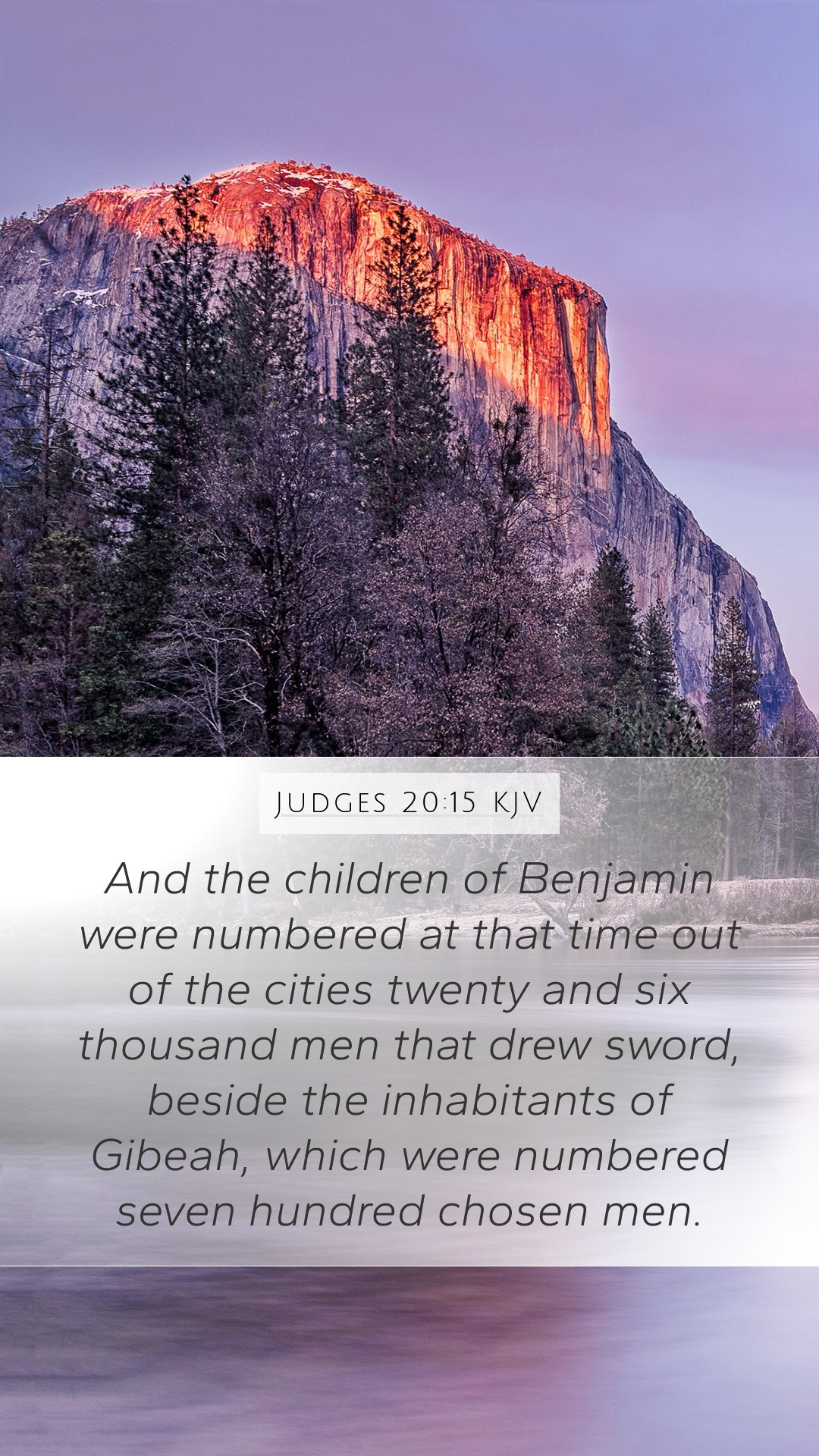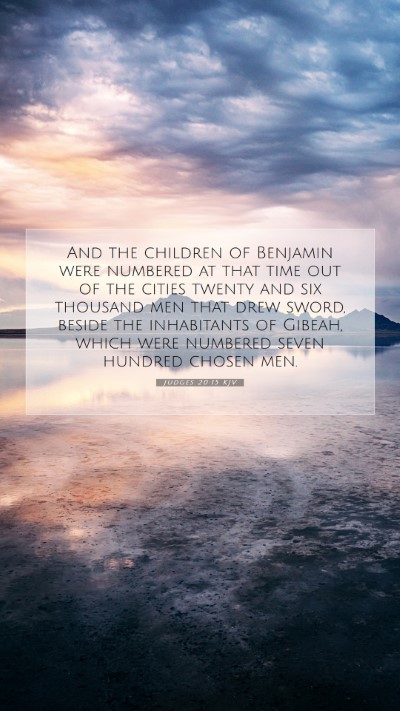Bible Verse Commentary on Judges 20:15
Verse: “And the people of Benjamin were numbered at that time out of the cities twenty and six thousand men that drew sword, beside the inhabitants of Gibeah, which were numbered seven hundred chosen men.”
Overview and Context
This verse is located in the narrative of the Book of Judges, which describes a dark period in Israel's history marked by moral and social chaos. Judges 20 revolves around a civil conflict between the tribe of Benjamin and the rest of Israel following a serious crime committed in the city of Gibeah. The context here is crucial for understanding the significance of the numbers presented, the tribes involved, and their implications for Israel's unity and moral integrity.
Bible Verse Meaning
The numbers in this verse reflect the dire situation of the Benjaminites and highlight the gravity of the conflict. The contrast between the total number of soldiers from Benjamin and the inhabitants of Gibeah illustrates the isolation of the tribe during this tumultuous time. The chosen men mentioned were elite, indicating that despite their smaller number, they were renowned for their skill in battle.
Exegesis and Analysis
-
Matthew Henry's Commentary:
Henry emphasizes the fatal consequences of the Benjaminites' actions, suggesting that their presence in the conflict signifies both their guilt and the tragic isolation that results from sin. The chosen men are seen as a remnant that defies the overwhelming opposition and highlights the themes of judgment and divine sovereignty. The verse calls attention to the seriousness with which God regards immorality.
-
Albert Barnes' Notes:
Barnes provides insight into the numerical significance, noting that the large size of the Benjamite army indicates their strength, which stands in stark contrast to the odds they face. There’s an aspect of the divine irony wherein a select group stands against a united Israel, illustrating God’s judgment on collective wrongdoing.
-
Adam Clarke's Commentary:
Clarke discusses the specificity of the numbers as indicative of the tribe’s capacity for war, albeit in a morally torn society. He notes that the mention of seven hundred chosen men from Gibeah reflects both the honor and the peril of a tribe involved in heinous acts, serving as a sobering reminder of the consequences of sin.
Significance in Scripture
This verse illustrates a critical moment where the collective trust and societal fabric of Israel were deeply strained. It raises questions about justice, accountability, and the dynamics of tribal loyalty in the light of God’s law. As congregants engage in Bible study, the nuanced issues raised by this text can influence discussions on morality, accountability, and communal justice.
Application for Today
Judges 20:15 can be explored in various Bible study groups or sessions as a focal point for understanding how moral failings can lead to broader social repercussions. This commentary illuminates the potential for divisiveness born from sin and can encourage discussions among participants about historical versus contemporary moral dilemmas.
Cross References
- Judges 19:10-30 - The crime that initiated the conflict.
- Judges 21:3-5 - The aftermath of the battle and the lamenting over Benjamin.
- Romans 12:17-21 - Themes of retribution and justice that resonate with God's view on righteousness.
Conclusion
Judges 20:15 presents a rich tapestry for Bible verse meanings and interpretations concerning conflict, accountability, and justice within the community of faith. The commentary from various scholars invites deeper understanding and encourages readers to apply these lessons in their Bible study sessions, enhancing their grasp of both historical and contemporary issues.
In summary, this verse serves as a crucial reminder of the consequences of sin within a community and the complexity of justice, relevant to both ancient Israel and modern readers seeking to understand the depths of scripture.


